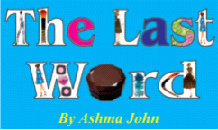 Two days ago, I bought a single mango for €8, which works out to approximately $2,020 in Guyana currency. Most would call it a rip off because where I come from you can get mangoes for free if your neighbour has a tree.
Two days ago, I bought a single mango for €8, which works out to approximately $2,020 in Guyana currency. Most would call it a rip off because where I come from you can get mangoes for free if your neighbour has a tree.
Since moving away, buying mangoes has become somewhat of a luxury and it is something I always do with my fingers crossed because the chances of them having no taste are high.
This has made me reflect on how the meaning of the word luxury has evolved and especially as it relates to fashion and skincare. The word seems to be plastered on everything these days to show some indication of a premium factor, feel or benefit. It’s even part title of a song by Vybz Kartel. “Luxury doll”, celebrates luxury as having a perfect body, by means of surgery.
Because the word is freely overused without much thought or consideration, there is an exhaustion of products being made with high hopes of them being able to cure our insecurities and acquire some advanced stage superior beauty. But like the acquiring of the mango in a place where it doesn’t grow, the idea of the word luxury is somewhat relative many would argue. Nevertheless, I still feel as if luxury these days is recognized mostly by price and hardly ever by craftsmanship, innovation and quality. Some say luxury products have gone too mass, meaning that they are no longer just for a select few; most brands carry lines and products to fill the need of the aspiring consumer base.
But still in this sense, luxury is being perceived as a thing that only a few could afford, rather than there being a focus on the actual make of the product. In an article titled “The Law, Culture and Economics of Fashion”, C Scott Hemphill and Jeannie Suk said that the procurement of luxury fashion can be separated by two main motivators the first one being feeling the need to be in fashion and the other being about expressing uniqueness.
Capitalizing on the fact the consumers live in a digitally complex world that has a strong influence on their psyche and their predisposition to consuming constantly, brands have managed to influence the concept of luxury, replacing quality with capital gain.
I live in a place that praises the things I always took for granted in Guyana, like custom-made clothing. People always thought I was old fashioned and out of touch for having a seamstress when I lived at home. Having clothes made locally was always a cheaper alternative but living in a time where mass production of fashion is a way of life, it was strange. Why wait, when I can have it instantly people used to say to me. Having something customized for your body only is a luxury even if it comes as cheap as chips and in a time where mass production and having it seems special.
Organic beauty
Turmeric, honey, aloe and coconut oil are all raw ingredients that are now being added to beauty products. When I lived in Guyana, I always craved foreign-made products, and was influenced to follow what seemed popular as opposed to enhancing what was natural and readily available. Overriding naturalness for chemical madness, I purchased Clean and Clear products religiously only to have them further irritate my skin.
Luxury is relative and while it often exists in different forms such as expensive travel, food and fashion, it doesn’t mean worthy luxury is only legitimate if it is expensive. According to Jonathan Akeroyd, the chief executive of Gianni Versace SPA, “Sustainability, flexibility, responsibility, quality and engagement will be even more important than they are today. They will determine the success of a company in ways beyond what we can foresee and … they will give it the right language and attitude to connect to the new generation of luxury consumers”. As I said, even though luxury is relative is has more to do with quality than anything else









